-

It rained here in Georgia today. Not that unusual except that the rain came in from the southeast, which is not what we usually expect. The culprit is a tropical system, not organized enough to be named but carrying plenty of moisture with it, that has been drenching the Miami area today. (You can see…
-

If you like to plan outdoor work ahead of time, here is a site that might be useful to you this summer. The Weather Prediction Center has a bunch of very useful prediction maps, including predictions for heat index, which is related to high temperatures linked with high humidity. The map for this coming Friday…
-
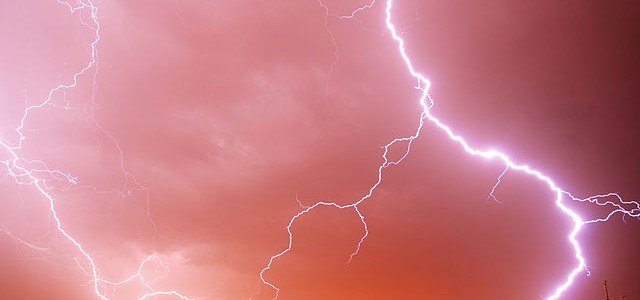
If you are looking for more information about topics in weather and climate or if you just want to learn something new, you might want to check out a couple of sites that contain a lot of useful modules which explain various aspects of weather and climate at no cost, although for MetEd you will…
-
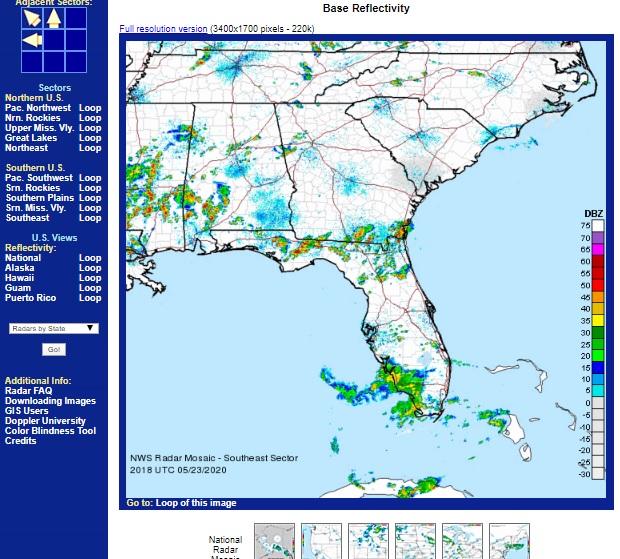
Almost everyone has seen radar images of precipitation on television or online in the past and knows at least a little about how to interpret them. While many television stations have their own low-power radars, the majority of weather radar images come from the National Weather Service. But their radar images come in two ways…
-
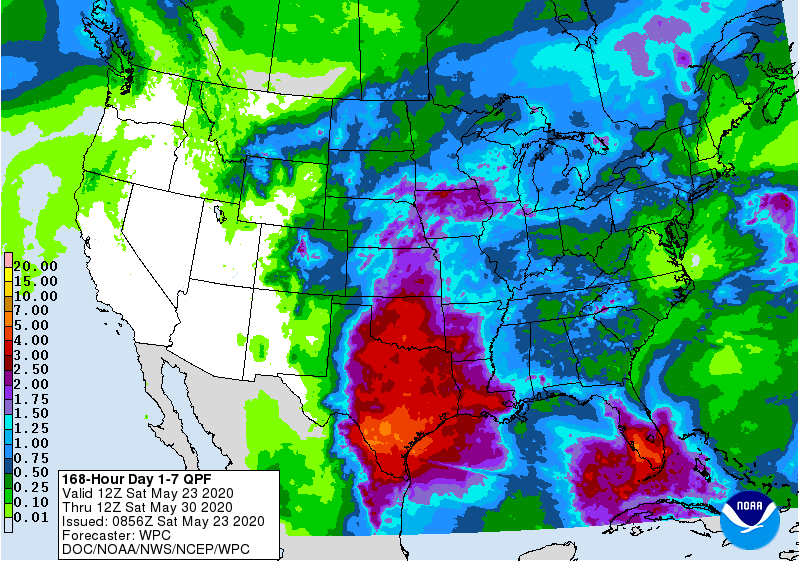
The latest 7 day QPF map shows that most of the Southeast should have a fairly dry week, with some showers this weekend and again towards the end of the week but mostly dry mid-week. The exception is the southern end of the Florida peninsula, which could receive copious rain from a tropical system which…
Posted in: Climate outlooks -
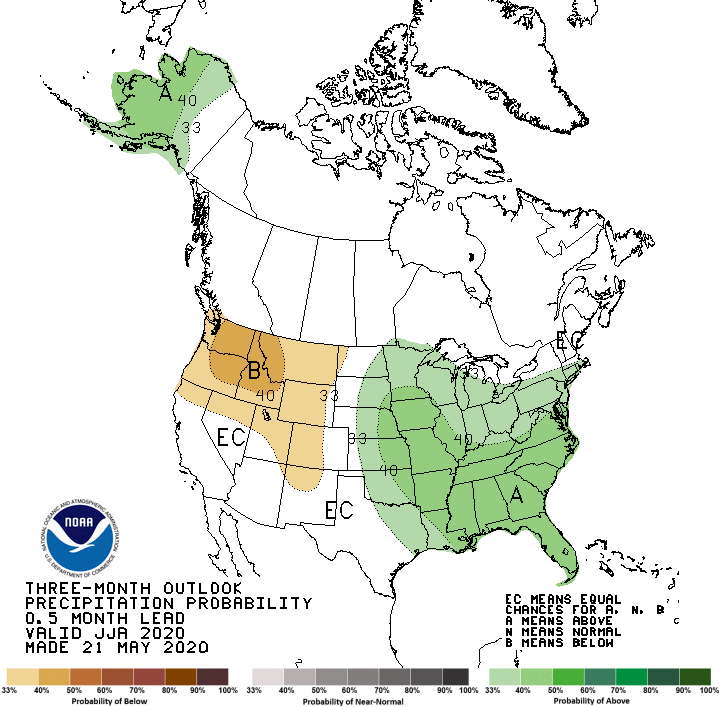
The latest climate predictions from NOAA’s Climate Prediction Center are out and show that for June, July and August 2020, temperatures across the Southeast are leaning towards warmer than normal conditions and precipitation is leaning towards wetter than normal amounts. That does not mean there will be no dry or cool spells, but at this…
Posted in: Climate outlooks -
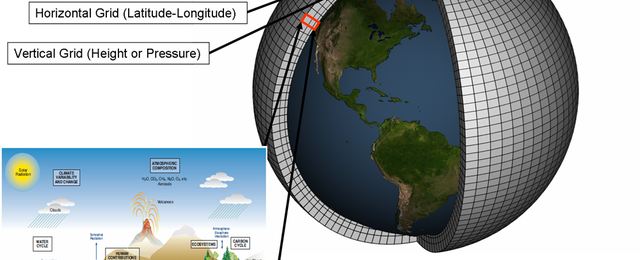
As a meteorologist I often roll my eyes when I hear comments about weather models always being wrong. In fact, most of them are very good, but even the best aren’t perfect, because there are inherent errors in input data, simplifications of atmospheric processes like precipitation formation which happen on small scales, computing errors due…